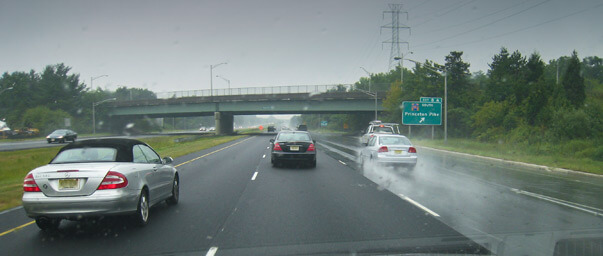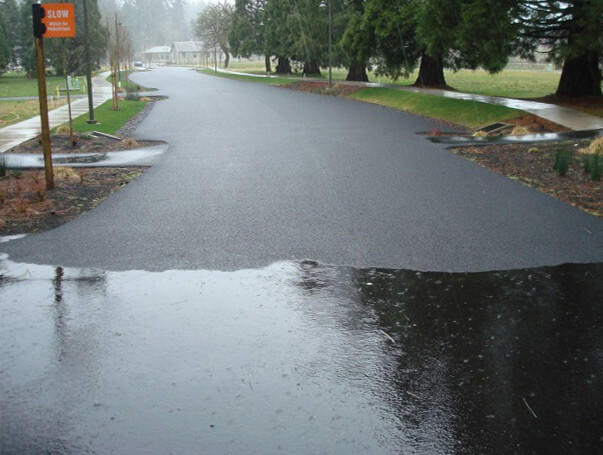Year-round training, workshops, and conferences on current pavement technology and methods
CAIT’s Pavement Resource Program (PRP) is a robust research operation that boasts long-standing AASHTO-accredited testing services. It also is deeply committed to spreading the word—and skills—on pavement management, customized systems for condition modeling and budget planning, and finding the exact right materials and mixes for every application.
Throughout the year, PRP, in conjunction with NJLTAP, offers a multitude of courses, seminars, and workshops on various pavement technologies and strategies to state, federal, and local agency personnel, public works professionals, planners and developers, civil engineers, consultants, and material producers.
One example is the full-day seminar PRP and NJLTAP hosted in fall 2016 sharing the most up-to-date information on permeable pavements.
Municipal, county, and state agencies are increasingly focused on sustainable approaches and low-impact development of communities and the networks and systems that connect them.
As a way to “green” our transportation infrastructure, permeable pavements are being used for their ability to reduce stormwater runoff, increase groundwater recharge, and lessen the risk of sewer system overflows. Permeable pavements are best suited for parking lots and low traffic-volume streets, especially in spots where storm sewers are already at or over capacity.
Although some porous pavements are nearly indistinguishable from nonporous materials to the average citizen, their environmental effects are qualitatively different. In addition to letting water flow through, many of these pavements also effectively trap solids and filter pollutants from the water.
Sounds good, right? But a key barrier to wider use of permeable materials and techniques is the need for reliable design guidelines and specifications, as well as established construction and maintenance practices. The CAIT Permeable Pavement seminar filled that gap. Evaluations forms returned statements like, “very thorough and knowledgeable speakers” and “much more presentation data than I expected.”
The event attracted professionals from 15 private companies, plus the U.S. Environmental Protection Agency, NJ DEP, NJDOT, New Jersey Asphalt Pavement Association (NJAPA), and engineers from Middlesex, Monmouth, Passaic, and Somerset counties, plus seven townships and municipalities.
Co-editor of the 2015 ASCE book, Permeable Pavements, David R. Smith (Interlocking Concrete Pavement Institute) organized the program.
March 2017



